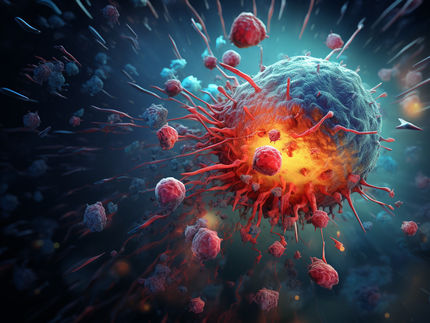Genmab announces responses with HuMax-CD4(TM) in non-cutaneous T-cell lymphoma
HuMax-CD38 also effective in preclinical studies: Kills Multiple Myeloma and Plasma Cell Leukemia Tumor Cells
Advertisement
Genmab A/S announced preliminary results in the Phase II study using HuMax-CD4TM to treat patients with refractory or relapsed non-cutaneous T-cell lymphoma. At week 6, according to the Cheson criteria, 3 patients achieved objective responses as assessed by CT scan and clinical investigation, including 1 complete response unconfirmed (CRu) and 2 partial responses (PR). Two of the patients (CRu and PR) had progressive disease at week 12, whereas the third patient had only the week 6 CT scan to date and is still being treated in the study.
In addition to the responses verified by CT scan, study investigators reported significant improvement in another 3 patients. Following treatment with 2 and 3 infusions of HuMax-CD4, most of the lymph nodes in 2 patients returned to normal size lasting for a period of 3 and 6 weeks, respectively, after which both patients were withdrawn from the study due to disease progression. The third patient had received 7 infusions of HuMax-CD4 and described an overall improvement in general condition during the course of treatment, however, CT scan at week 6 demonstrated progressive disease.
A total of 14 patients were enrolled in the study. The efficacy data represent 11 patients who received at least 1 infusion of HuMax-CD4 and were followed for at least 6 weeks or were withdrawn for safety reasons. Three of the 11 patients have received all 12 infusions. The remaining 8 patients received 2 to 7 infusions. One of the 11 patients is still being treated.
Genmab A/S also announced that HuMax®-CD38 was effective in killing primary multiple myeloma cells and plasma cell leukemia cells in preclinical studies. HuMax-CD38 is a human IgG1κ antibody that targets the CD38 molecule which is highly expressed on the surface of multiple myeloma tumor cells.
HuMax-CD38 was more effective in triggering both Antibody-Dependent Cellular Cytotoxicity (ADCC) and Complement Dependent Cytotoxicity (CDC) immune system killing mechanisms than a broad array of other human CD38 antibodies when tested on a panel of over 10 primary tumors from multiple myeloma patients, confirming earlier study results. HuMax-CD38 also potently killed tumor cells from a patient with a CD38/138 positive plasma cell leukemia which was refractory to chemotherapy at the time of analysis. Plasma cell leukemia is a manifestation of multiple myeloma in which tumor cells are present in the blood.
Other news from the department research and development
Most read news
More news from our other portals
See the theme worlds for related content
Topic world Antibodies
Antibodies are specialized molecules of our immune system that can specifically recognize and neutralize pathogens or foreign substances. Antibody research in biotech and pharma has recognized this natural defense potential and is working intensively to make it therapeutically useful. From monoclonal antibodies used against cancer or autoimmune diseases to antibody-drug conjugates that specifically transport drugs to disease cells - the possibilities are enormous

Topic world Antibodies
Antibodies are specialized molecules of our immune system that can specifically recognize and neutralize pathogens or foreign substances. Antibody research in biotech and pharma has recognized this natural defense potential and is working intensively to make it therapeutically useful. From monoclonal antibodies used against cancer or autoimmune diseases to antibody-drug conjugates that specifically transport drugs to disease cells - the possibilities are enormous



























































